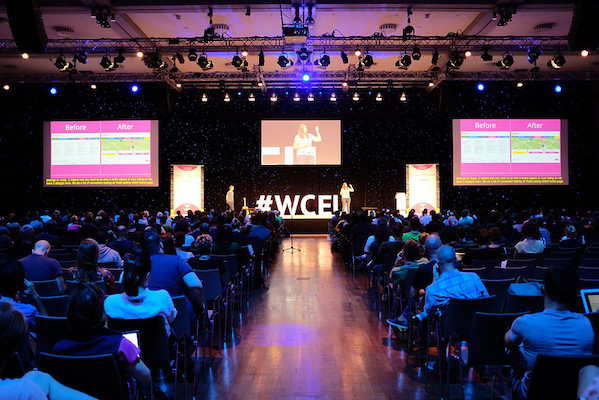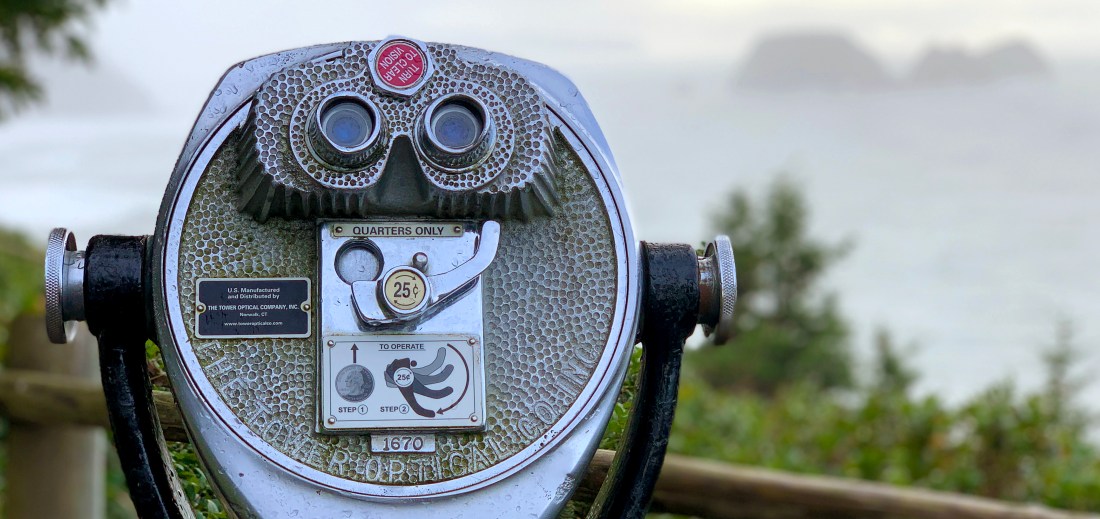and it has traditionally viewed marketplaces as free and open. In my opinion, we need to recognize that marketplace organization is a third factor which has so far been neglected.
Moi @ WordCamp Europe (WCEU) in Porto, Portugal, today (just a short while ago) … links to follow
WordCamp Europe 2022 — it’s Coming Up!
Preparing for WCEU … I think I will be asking a lot of questions … I want to know what people think, how people think, where they see possibilities, opportunities, goals, dreams, … for their own future, for our future together, for collaboration, for networking, for the entire marketplace of ideas.
Will you be there in person, will you participate online? Will you answer my questions?
- How would you define “search engine”?
- More questions / issues here (if you want): “Language & Community — Some More or Less Clearly Defined Definitions“
Hope to see you there! 😀
WordPress Cafe: How to define “Search Engine”?
As I will hopefully be attending the WordPress Cafe @ WordCamp Europe this year, I also hope to participate in the discussions related to “Search Engine Optimization”. In my humble opinion, the “first and foremost” question here is: How do you define a search engine? (as otherwise you wouldn’t know what you’re trying to optimize or even talking about in the first place).
Half a decade ago, at WCEU in Paris, I raised a very similar question to Matt in the Q&A session after his talk with Om Malik. In case you missed it, I posted a link to the video of the event here:
please feel free to watch it! 😀
“WOOHOO — WordPress Advanced Search!! 😀” [ http://fun.freezine.org/2018/02/22/woohoo-wordpress-advanced-search ]
To cut to the chase, I believe every website is a search engine (yet not every search engine need be a website). Generally, a lot of technologies function as search engines or finding tools without any requirement of being connected to the Internet (also known as “online”). For example: in many applications, <ctrl>+<F> is encoded as a search tool, or the Windows “Menu” key provides access to search functionality, or even an old-fashioned “card catalog” (or the “index” and / or “table of contents” in other paper-based media). Dictionaries and encyclopedias are search engines. Maps. Pedestrian crossings or crosswalks. The McDonald’s “golden arches”. Your eyes, your ears, your nose. Many things are search engines.
In the meantime, WordPress.COM has continued to expand the search capabilities available to the users of WordPress.COM … and yet by and large, they still continue to remain quite basic.
Even if a website has no “search box”, every website (as long as a website exists at all) has a so-called “homepage” … which is the default starting point (sometimes they are even referred to as “start page”).
On the WWW, the optimization of search engines is really the responsibility of those people who maintain websites. About 15 years ago, I would sometimes get into discussions with people who had such responsibilites (e.g. with Matt Cutts or Marissa Mayer via twitter.com ). Over time, I have come to understand that quite often the people who maintain websites have other things on their minds than whether or not the information on their sites is easily accessible or not (see, for example, “This is just a load of crap” [ https://podcasts.video.blog/2022/01/08/this-is-just-a-load-of-crap ] ).
Shortlisted Hacks in Topical Search for WCEU 2022
I have been mulling over ideas for the WCEU 2022 conference, and it occurred to me that it might be a good idea to open this up to collective review.
I suggest that people should brainstorm ideas , review each other’s hacks and so on. My proposed tags to identify this quasi-thread are #WCEU , #WCEU2022 and #SHiTS (for “Shortlisted Hacks in Topical Search” 😉 ) … I’ll let someone else figure out a tagline for an alternative “Giggles” thread (LOL 😉 ).
Let me now introduce a couple of examples, introducing the types of hacks I have been thinking of — neither of these are very complex, and I expect they can be both achieved in a couple lines of code without interfering with any other code out there. The first is so simple, I am kind of amazed no one has introduced it before.
On the wordpress.com/tags page there is a search box (presumably in order to search for tags, but in fact it does nearly nothing — it merely appends whatever is typed into the search box to the URL wordpress.com/tag/ … as if the user weren’t able to do that themselves). A much better solution would be actual search results — for example if the user searched for “online” the SERP would list actually used tags like “online banking”, “online marketing”, “online gambling” or whatever.
Another hack I have thought of seems a little more involved, but I think it must also be quite simple & straightforward. The idea is to enhace tag pages to include not only the correspondingly tagged posts, but also to include related tags. What I mean is that a tag could be considered related to another tag insofar as both tags appear on the same posts (and the more posts both tags commonly appear on, the closer the relationship). Some additional number-crunching might be useful, but that is the basic idea.
I have several more ideas, too … but here & now I want to mainly focus on how to organize such a distributed style of hacking. I am kind of new to this, so perhaps I am missing something rather important — and I would be happy if people could help me (and others — each other, or whatever) out. Also, I do not consider myself well-versed in php, and my “coding chops” in general are quite insignificant.
I hope people will enjoy the idea of brainstorming ahead of the conference — maybe something like that has already been done before? Please, support such collaboration either by contributing your own ideas or feedback … or by simply sharing the idea to brainstorm more ideas!
Thanks for your interest! 😀
How to Fix a Problem (in 60 Seconds or Less)
There aren’t many problems you can solve in 60 seconds, but here’s one: If your shoelaces are loose or untied, simply tie them again — and if you still have a few seconds to spare, then double-knot them (loosely).
Most problems, however, are far more complex … and solutions are far more intricate, often raising new issues that need to be dealt with. I am reminded of how Noam Chomsky would explain why he doesn’t often appear on mainstream media shows: the issues he talks about are simply too complex to even just describe in short sound bites.
In contrast, if you want to become successful like a famous celebrity, then you have to kill it in just a few seconds. Simply invade. Simply retaliate. Simply vax. Simply dunk. Simply break the Internet in the split second of a single freeze frame photo.
It’s easy, right? All you need is cameras. Well, maybe a good PR agent? Some billboards? …?
“Vote for me — I will X” … where X is simply a short phrase that means fix something … no explanation required. You will simply pull the plug? Wow, what a genius! That will surely solve everything, right? (see also “Everywhere Plans for Everybody” [ https://wants.blog/2022/01/07/everywhere-plans-for-everybody ] )
It’s complicated — but it is not futile. Don’t give up — you still have someone … right?
Who do you have? Who do you love? Who do you appreciate? Who do you care about at all? Do you care about yourself? If you don’t, then why would anyone else? Do you care about your community? Your environment? Your habitat? Or do you want to live in a shit-hole?
The first step towards solving any problem is to recognize that the problem exists. Let me explain this with an example of the kinds of problems I have taken onto my own “bucket list” of issues I personally want to address in my own lifetime.
A few months ago, it became obviously clear to some people that the stuff I have been saying for many years — probably a decade or even more — is in fact true: that Google is just as much “irrational media” (see “Hope & Change: Flipping the F-word & Removing the Old-Fashioned R-word” [ http://remediary.com/2020/11/06/hope-change-flipping-the-f-word-removing-the-old-fashioned-r-word ] ) as is Facebook. Although it had already become clear to a few people that Google had manipulated the 2020 presidential election in the United States of America, these new facts are pretty much undeniably a statement from the company itself that essentially amounts to an admission of manipulation (see “This is just a load of crap” [ https://podcasts.video.blog/2022/01/08/this-is-just-a-load-of-crap ] ) … and it blew up like a wildfire … and was doused.
Now we have a new crisis. Is the fact that what many gullible users consider to be a reliable source of information has in fact itself admitted that it actually is not a reliable source of information … somehow unworthy of further reflection? Have we simply moved on? Is our attention span so limited? Where might this kind of problem lead?

featured cover image via https://www.today.com/popculture/kim-kardashian-tries-break-internet-risque-magazine-covers-1D80283810 ; image from the movie “Idiocracy” via https://imcdb.org/movie_387808-Idiocracy.html
Creating the World We Want
In 2017, I attended my first WordCamp conference — WCEU in Paris. I was thrilled. It was thrilling. I engaged and interacted with some of the most inspiring people I have met from all over the world.
Beyond that, I asked Matt Mullenweg a question — and my question seemed to shock the entire audience of thousands of WordPress developers, designers, creatives, users and more. The huge auditorium was so quiet, you could hear a pin drop. If you want to watch a short excerpt from the event, please feel free to follow this link [ http://fun.freezine.org/2018/02/22/woohoo-wordpress-advanced-search ].
In the following years, I feel that WordPress (and Automattic) have made significant strides in the direction of my somewhat less than completely humble request: improving search (aka “information storage and retrieval”) with WordPress. Improving “natural language search” is very high on my own “bucket list” of priorities — one of a few things I hope to achieve (or at least make significant contributions towards) in my lifetime. Even at the time (in 2017), Matt himself said that my aspirations were very “forward-thinking”.
I have a few other “bucket list” items that are also WordPress related. In the intervening 5 years, I also attended WCEU in Berlin. I have now met with quite a few leaders in the WordPress arena and I also wish for more engagement in this direction … to collectively create the world we want. Increasingly, people are becomeing more and more aware that it is ultimately we who are responsible for grabbing the bull by the horns and steering us towards the future world we want.
Here (and now), I want to invite more engagement. I have tried this before, and I feel I need to try it again. Maybe the most simple and straightforward way is to simply ask people to add their own “two cents”, and then (if appropriate) I will extend an invitation to participate more. Beyond that, I think it is best to refrain from “Great Expectations” and simply wait and see.




